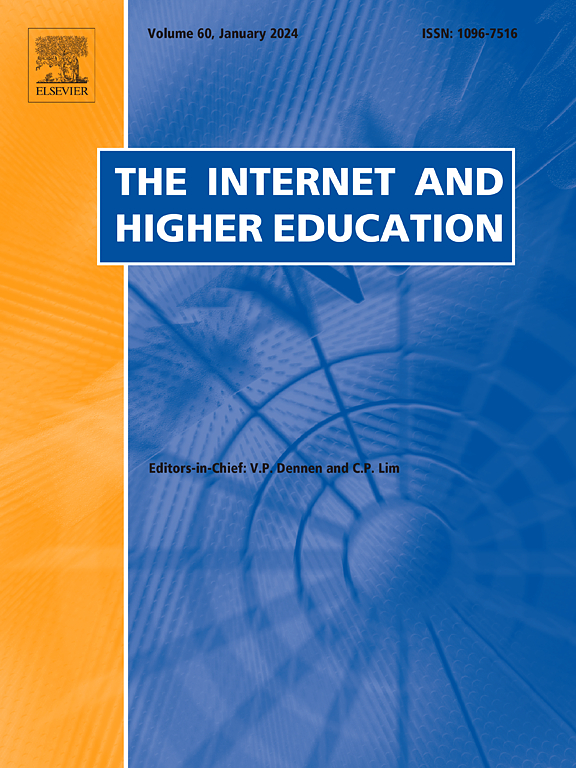探索本科生对人工智能与人类评分和反馈的看法
IF 6.8
1区 教育学
Q1 EDUCATION & EDUCATIONAL RESEARCH
引用次数: 0
摘要
在教育评估中使用人工智能(AI)为传统的评分挑战提供了可扩展的解决方案,但对可靠性、公平性和接受度的担忧仍然存在,特别是在写作等主观领域。本研究考察了与人类评估者相比,本科生对人工智能生成的评分和反馈的看法。参与者回顾了人工智能或人类提供的分数和反馈,并完成了一项调查,测量了他们在消息来源披露前后的看法。分析显示,学生们经常难以准确地识别评估者。此外,虽然对人工智能评分和反馈的看法总体上是中等的,但接触人工智能大大降低了学生对人工智能评分的信心。评分来源和识别准确性显著影响学生的认知。人为评分与更积极的看法有关,而错误的识别-当不与人为评分结合时-也会导致更积极的看法。然而,人为评分和错误识别的相互作用导致了更多的负面看法。对技术的舒适度、对人工智能的熟悉程度以及使用人工智能的频率等因素是学生对人工智能态度的重要预测因素。这些发现增强了我们对学生在教育评估中对人工智能的态度的理解,并强调了在教育环境中支持接受的深思熟虑的实施的重要性。本文章由计算机程序翻译,如有差异,请以英文原文为准。
Exploring undergraduate students' perceptions of AI vs. human scoring and feedback
The use of artificial intelligence (AI) in educational assessment offers scalable solutions to traditional grading challenges, yet concerns about reliability, fairness, and acceptance remain, particularly in subjective domains like writing. This study examines undergraduate students' perceptions of AI-generated scoring and feedback compared to human evaluators. Participants reviewed scores and feedback provided by either AI or a human and completed a survey measuring their perceptions before and after disclosure of the source. Analyses revealed that students often struggled to accurately identify the evaluator. Additionally, while perceptions of AI scoring and feedback were generally moderate, exposure to AI significantly reduced students' confidence in AI scoring. The source of the grading and identification accuracy significantly influenced students' perceptions. Human grading was associated with more positive perceptions, while incorrect identification—when not combined with human grading—also led to more positive perceptions. However, the interaction of human grading and incorrect identification resulted in more negative perceptions. Factors such as comfort with technology, familiarity with AI, and frequency of AI use were significant predictors of students' attitudes toward AI. These findings enhance our understanding of student attitudes toward AI in educational assessment and emphasize the importance of thoughtful implementation to support acceptance in educational contexts.
求助全文
通过发布文献求助,成功后即可免费获取论文全文。
去求助
来源期刊

Internet and Higher Education
EDUCATION & EDUCATIONAL RESEARCH-
CiteScore
19.30
自引率
4.70%
发文量
30
审稿时长
40 days
期刊介绍:
The Internet and Higher Education is a quarterly peer-reviewed journal focused on contemporary issues and future trends in online learning, teaching, and administration within post-secondary education. It welcomes contributions from diverse academic disciplines worldwide and provides a platform for theory papers, research studies, critical essays, editorials, reviews, case studies, and social commentary.
 求助内容:
求助内容: 应助结果提醒方式:
应助结果提醒方式:


